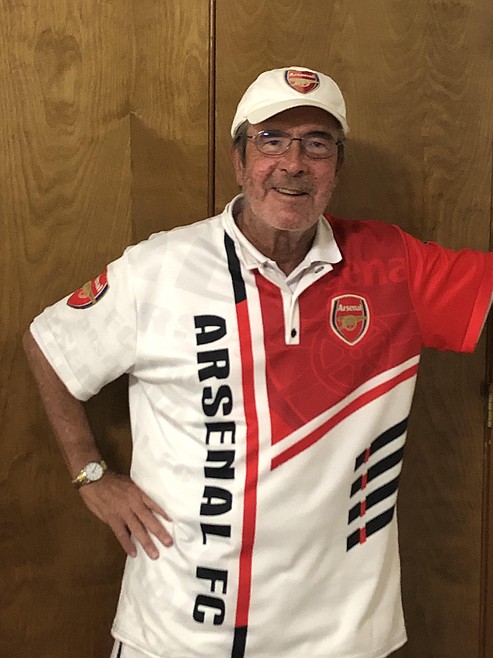THE CHEAP SEATS WITH STEVE CAMERON: NCAA needs to rethink this rule
The NCAA is whimpering and whining.
After sitting around and basically doing nothing for way too long, the organization now frets that college athletics — and the money being thrown around within it — cannot be controlled.
Boosters and agents essentially have told the NCAA and its member schools …
“Try to stop the flow of cash, and we’ll sue you.”
There is reason to be afraid.
Writing his concurring opinion on an antitrust case last summer (NCAA v. Alston), Supreme Court Justice Brett Kavanaugh said this: “The NCAA’s business model would be flatly illegal in almost any other industry in America.”
That statement was not legally binding, but you can see where all this is headed.
Let’s say that Joe Billionaire, who owns a string of pizza parlors across the South, wants to help the Auburn football team.
So, he makes it known that if Auburn gives him a list of their top 10 recruiting targets, Joe will offer each of them a million dollars — simply for wearing shirts promoting his pizzas.
NOW, FOR the record, Joe and his pepperoni empire are fictional in this tale — but everywhere in college athletics, many of these payoffs are becoming fact.
Not so long ago, that kind of arrangement would have been considered outrageous – and violated all sorts of NCAA rules and regulations.
If those players took the money, Auburn would be on probation forever.
Theoretically, at least.
But the NCAA has been afraid of lawsuits for some time, and now that NIL (name, image and likeness) has officially become legal, that fear has escalated into pure terror.
The combination of money available for recruiting and commercial deals — along with the one-time transfer rule that removed the necessity for an athlete to sit out a year after changing schools — has turned the “money sports” (football and men’s basketball) into something like a Wild West free-for-all.
Let’s take an example that occurred closer to home.
Washington State hoops coach Kyle Smith is trying to rebuild his 22-win team, even though only one player (Michael Flowers) was out of eligibility after last season.
The other four starters — Mouhamed Gueye, Efe Abogidi, Tyrell Roberts and Noah Williams — all hit the transfer portal.
Williams already has landed at Washington, and Roberts is still looking.
Gueye and Abogidi are going through the NBA draft process, but likely won’t be drafted. However, it’s almost certain neither will come back to Pullman.
Why?
They’re not unhappy.
In fact, Gueye’s progress in the Coug program led him to recommend WSU to another big man from Senegal, and 7-footer Adrame Diongue will join the program this year.
Assuming Gueye and Abogidi do not turn pro, they’ll be hunting for more profitable university landing spots.
There’s simply more NIL money available at other schools.
“They have more options in free agency, if you will,” Smith conceded.
“It’s just that the pecking order has changed with NIL.”
THERE’S been no end of hand-wringing at the NCAA, and committees have been formed (of course) to suggest courses of action.
In fact, there IS one path open to universities and the dithering body that supposedly governs athletics.
But first …
The NCAA, its members and all the committees can forget shutting off the spigot of money washing over students and recruits.
Justice Kavanaugh’s opinion made that perfectly clear — and there are plenty of agents ready to test their position in court.
“The moment they come to try to interfere with one of my clients’ deals — the next day is the moment they get hit with an antitrust lawsuit,” attorney Mike Caspino, who represents several football recruits that have landed six- and seven-figure deals with school-specific booster collectives, told The Athletic.
“They’re saying there’s a whole class of people (boosters) who can’t participate in the market for athletes’ NIL rights.
“That’d be like saying red-haired people can’t buy meat. That’s antitrust.”
I’M NOT an attorney, but I can read …
The Kavanaugh opinion, for instance.
Despite that threat, the NCAA does have authority over student-athlete eligibility, a power willingly provided by its members.
So, if Joe the billionaire pizza king wants to hand some kid a fortune to choose a particular school, well, I think that train has left the station.
On the other hand, this crazy business of coaches recruiting players from other schools —Kentucky’s John Calipari has almost advertised that he’s doing it — really has to stop.
Or slow down.
The NCAA needs to rescind that move-at-will transfer rule.
Making student-athletes sit out a year at a new school would toss some molasses in the transfer portal.
Among other things, transfers need to join the social and academic communities at a new university.
I mean, these young people are in school — with, like, classes and homework, you know?
Sitting out a year after a transfer was ALWAYS a good idea.
Let’s get back to it.
Email: scameron@cdapress.com
Steve Cameron’s “Cheap Seats” columns appear in The Press on Mondays, Wednesdays and Fridays. He also writes Zags Tracker, a commentary on Gonzaga basketball which is published monthly during the off season.
Steve suggests you take his opinions in the spirit of a Jimmy Buffett song: “Breathe In, Breathe Out, Move On.”

